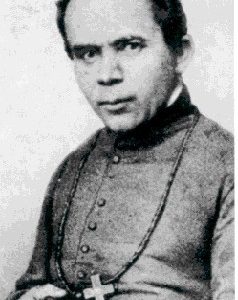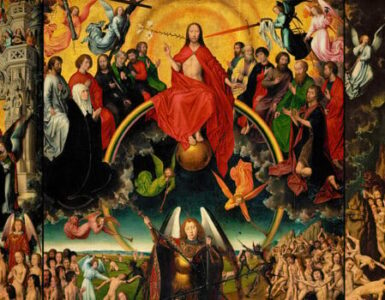With the decline of religion and the rise of atheism and agnosticism in the present world, the question naturally arises concerning the existence of God. The question, however, is twofold: does God exist and whether He hiding from us. The sun continues to exist despite cloud cover. If God exists, is He eclipsed, obscured by attitudes that are not congenial to His being present to us?
Hans Urs von Balthasar, surely one of the great theologians of the present era, has offered an explanation to this problem. In an article entitled, “Encountering God in Today’s World,” he suggests that the various things of the world are no longer an occasion for man to rise up in contemplation to the Absolute but for him to dominate them practically in technological instrumentality.” Technology bids us to look down at our own handiwork while at the same time looking away from what God has made.
Nature, including us human beings, is God’s handiwork. It bears His fingerprints everywhere. For those who believe in God, it is normal for them to trace His existence from His creation, just as a hunter could find his quarry by following its footprints. We might refer to this process as looking up. On the other hand, when man is bent on domesticating matter, he is looking down. The invisible God, who can be detected through His creation, therefore, is no less accessible than He was in other periods of time throughout history. The resolution of the problem lies not with God who is unchanging, but with us.
There was, some time ago, a depression on the road in front of our house. The depression was sufficiently deep to be filled with enough water to attract ducks who would use it as a miniature wading pool. One day, while I was out taking a walk, I witnessed a team of 10 little ducklings, each about the size of a baseball, happily following their mother. I generously interpreted their beaks as smiles. That is the way it played on my heart. One by one they paused before the curb to muster enough strength to vault it in one leap in order to get on to the sidewalk. It was one of the most beautiful spectacles I had ever witnessed. I had no idea where they were going, but the mother was in charge and the troop was unconcerned.
Charles Darwin could not possibly have explained the biological intricacies that went into these little creatures. Nor could he have explained their superlative beauty. They were created and sustained by the absolute artist, God Himself. Darwin never looked up. He thought that the secret of life was contained entirely within life.
Psalm 19 tells us to look up and see that “The heavens declare the glory of God and the skies announce what He has made”. For C. S. Lewis, ″I take this to be the greatest poem in the Psalter and one of the greatest lyrics in the world” (Reflections on the Psalms, p. 56). For the Jesuit poet, Gerard Manley Hopkins, “The world is charged with the grandeur of God. It will flame out, like shining from shook foil. It gathers to a greatness, like the ooze of oil.” The best way to do justice to God is to do justice to nature. Nature is the stepping stone back to its Author. But it is a stepping that is made with the heart, one that comprehends the wondrous quality inherent in nature.
The expression “asphalt jungle” is the title of a 1950 motion picture. The term “concrete” can replace “asphalt” to intensify the notion of something that thoroughly covers something that should remain open. “Asphalt jungle” is an apt description of the present world that has shut God out of the picture. We are left in a jungle of confusion. “Here were decent godless people,” wrote T. S. Eliot, “Their only monument the asphalt road and a thousand lost golf balls”.
The world is “theophanous,” a seldom used word meaning that God can be seen through the world. The world is transparent and allows us to catch glimpses, however limited and imperfect they may be, of the God we cannot do without. If we could only look up!
Contraception is a good example of a technology that covers over God’s creative work. It is widespread and no longer considered to be an issue. However, it is a way of saying “no” to God’s involvement in procreation. As a consequence, marital intercourse becomes a purely human activity. It loses its relationship with the transcendent. This inevitably leads to abortion which is a rejection of God’s creation of an unborn child. Euthanasia enters the picture when man, not God, decides when human life shall end. As C. S. Lewis has pointed out in his book The Abolition of Man, “if man chooses to treat himself as raw material, raw material he will be”. As raw material, however, he loses his relationship with God and even with himself. He becomes unknown to himself.
Consistent with treating himself as raw material, modern man refuses to accept the notion that God created two distinct sexes. By excluding God’s wisdom in this matter, he now seeks to determine sex through science. Puberty blockers, chemicals, and surgery are employed so that he can correct God’s “mistakes” or provide the sexes with a second and more satisfactory creation.
God does exist. Furthermore, He is not hidden. It is modern man who has hidden himself from God by looking downward and, through technological manipulations, attempts to improve on God’s initial creation.
Photo by Jan Demiralp on Unsplash












